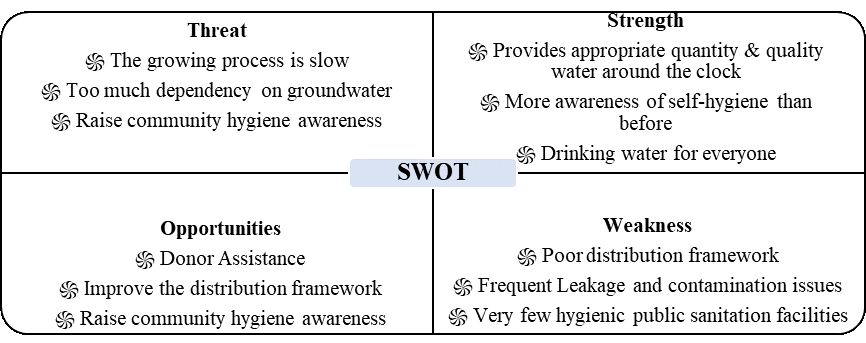An Analysis of the Quality of Dhaka's Potable Water and Sanitation Services
DOI:
https://doi.org/10.59110/jeicc.v2i1.134Keywords:
Sanitation, Potable water, SDG, DWASA, Water QualityAbstract
This study evaluates the current state of Dhaka's potable water and sanitation amenities. Moreover, the study addresses 6.1 and 6.2 of Sustainable Development Goal 6, which calls for optimal sanitation services and present conditions regarding water quality in Dhaka. In addition, the DWASA is the sole provider of potable water in the city, and as such, they are having a hard time keeping up with the demand for potable water. In addition, a significant number of private residences lack access to potable water and sanitary sanitation services on their properties. In order to complete this study, primary data were gathered through the use of questionnaire surveys, and informal interviews with experts; and secondary data were analyzed. The result is analyzed in three sections in which the first section shows the analysis regarding the privileged class, another one shows the underprivileged class analysis and the third one shows the combination of both. By breaking down the results, it is observed that the situation is way better than before in terms of consuming water from the improved sources, though the sanitation amenities need to be improved a lot though the progress is impressive. The study reveals that there is discrimination based on gender, economic capacity, and social standing for access to potable water and sanitary sanitation amenities. In addition, private-public partnerships can significantly enhance the current state of affairs. The report also recommends a number of activities to be taken in order to reach the goals attained in Dhaka.
Downloads

Downloads
Published
How to Cite
Issue
Section
License
Copyright (c) 2023 Abdur Razzak Zubaer

This work is licensed under a Creative Commons Attribution-ShareAlike 4.0 International License.






